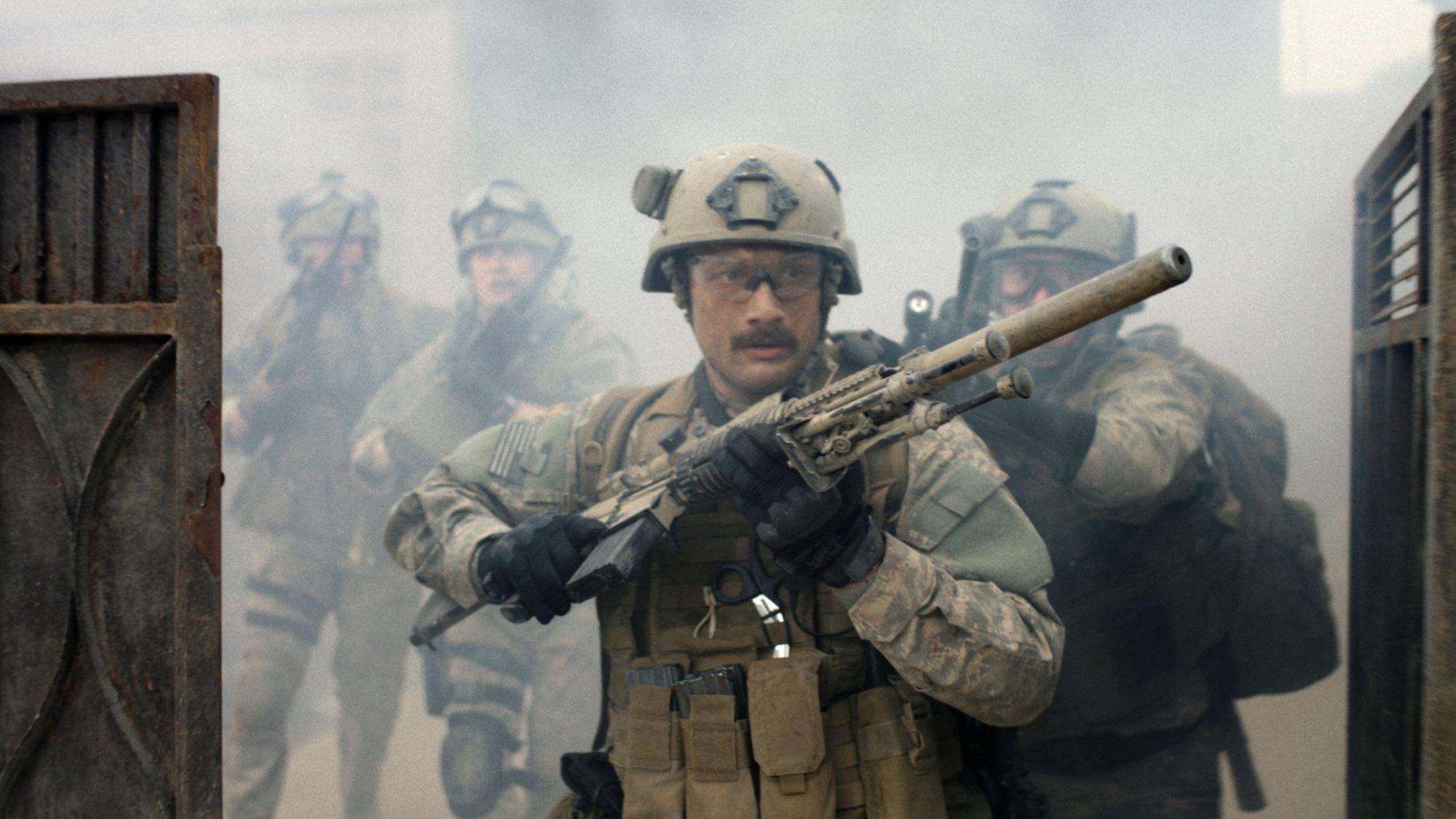Warfare: an 'honest' account of brutal engagement in Iraq
Alex Garland's film focuses on the 'overwhelming, sensory journey' of conflict

A free daily email with the biggest news stories of the day – and the best features from TheWeek.com
You are now subscribed
Your newsletter sign-up was successful
Alex Garland's new film "feels like the most honest depiction of modern warfare I can recall seeing", said Robbie Collin in The Telegraph.
Co-written and co-directed by Ray Mendoza, a former US navy Seal (who served as a consultant on Garland's film "Civil War"), it is based on his memories of a real-life incident: a botched engagement in the Iraqi city of Ramadi in about 2006.
In the opening scene, a group of Seals descend on a civilian home in the cover of darkness, terrifying its residents; the men then set up sniper-surveillance positions from which to give cover for a ground operation, and wait.
The Week
Escape your echo chamber. Get the facts behind the news, plus analysis from multiple perspectives.

Sign up for The Week's Free Newsletters
From our morning news briefing to a weekly Good News Newsletter, get the best of The Week delivered directly to your inbox.
From our morning news briefing to a weekly Good News Newsletter, get the best of The Week delivered directly to your inbox.
There's no banter or chat about what they'll do after the war, said Peter Bradshaw in The Guardian: just minutes of silence as they sit in a state of "hyper-alertness". Then, in a flash, disaster strikes, and all is carnage and chaos.
"Warfare" is in some ways similar to the rash of war-on-terror films that came out 20 years ago, such as "The Hurt Locker"; but this film is "almost fierce in its indifference to political or historical context" (a resource that should be "more readily available" two decades on); and there is "almost no conventional narrative progression".
Garland and Mendoza are "concerned only with the overwhelming, sensory journey that is conflict", said Clarisse Loughrey in The Independent. The film is all about the moment: the pain, fear and blood. In this work of "attempted neutrality", there's no musical score to manipulate viewers' emotions; none of the characters have sympathetic backstories. But the violence depicted on screen didn't erupt from nowhere; there was a path to it, and the film feels unmoored without that context.
A free daily email with the biggest news stories of the day – and the best features from TheWeek.com
-
 Health insurance: Premiums soar as ACA subsidies end
Health insurance: Premiums soar as ACA subsidies endFeature 1.4 million people have dropped coverage
-
 Anthropic: AI triggers the ‘SaaSpocalypse’
Anthropic: AI triggers the ‘SaaSpocalypse’Feature A grim reaper for software services?
-
 NIH director Bhattacharya tapped as acting CDC head
NIH director Bhattacharya tapped as acting CDC headSpeed Read Jay Bhattacharya, a critic of the CDC’s Covid-19 response, will now lead the Centers for Disease Control and Prevention
-
 Kia EV4: a ‘terrifically comfy’ electric car
Kia EV4: a ‘terrifically comfy’ electric carThe Week Recommends The family-friendly vehicle has ‘plush seats’ and generous space
-
 Bonfire of the Murdochs: an ‘utterly gripping’ book
Bonfire of the Murdochs: an ‘utterly gripping’ bookThe Week Recommends Gabriel Sherman examines Rupert Murdoch’s ‘war of succession’ over his media empire
-
 Gwen John: Strange Beauties – a ‘superb’ retrospective
Gwen John: Strange Beauties – a ‘superb’ retrospectiveThe Week Recommends ‘Daunting’ show at the National Museum Cardiff plunges viewers into the Welsh artist’s ‘spiritual, austere existence’
-
 Bad Bunny’s Super Bowl: A win for unity
Bad Bunny’s Super Bowl: A win for unityFeature The global superstar's halftime show was a celebration for everyone to enjoy
-
 Book reviews: ‘Bonfire of the Murdochs’ and ‘The Typewriter and the Guillotine’
Book reviews: ‘Bonfire of the Murdochs’ and ‘The Typewriter and the Guillotine’Feature New insights into the Murdoch family’s turmoil and a renowned journalist’s time in pre-World War II Paris
-
 6 exquisite homes with vast acreage
6 exquisite homes with vast acreageFeature Featuring an off-the-grid contemporary home in New Mexico and lakefront farmhouse in Massachusetts
-
 Film reviews: ‘Wuthering Heights,’ ‘Good Luck, Have Fun, Don’t Die,’ and ‘Sirat’
Film reviews: ‘Wuthering Heights,’ ‘Good Luck, Have Fun, Don’t Die,’ and ‘Sirat’Feature An inconvenient love torments a would-be couple, a gonzo time traveler seeks to save humanity from AI, and a father’s desperate search goes deeply sideways
-
 A thrilling foodie city in northern Japan
A thrilling foodie city in northern JapanThe Week Recommends The food scene here is ‘unspoilt’ and ‘fun’